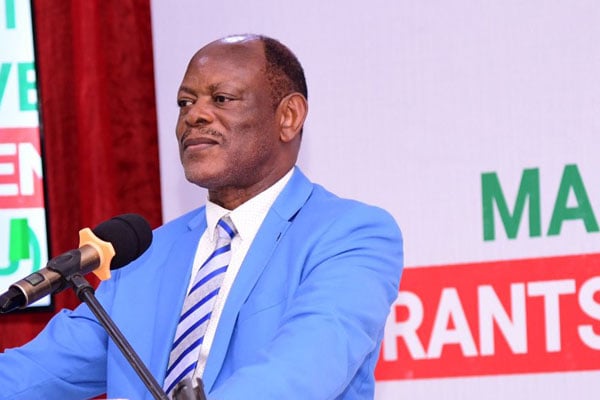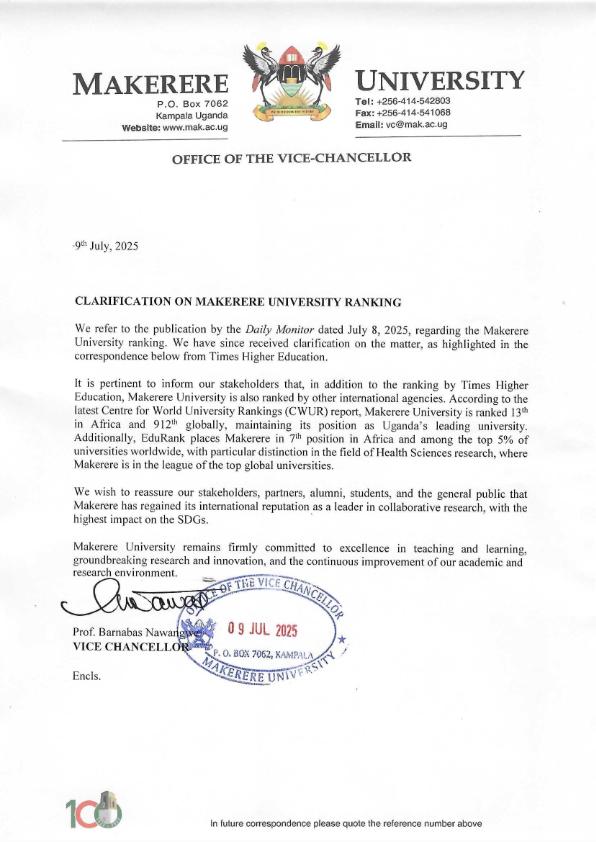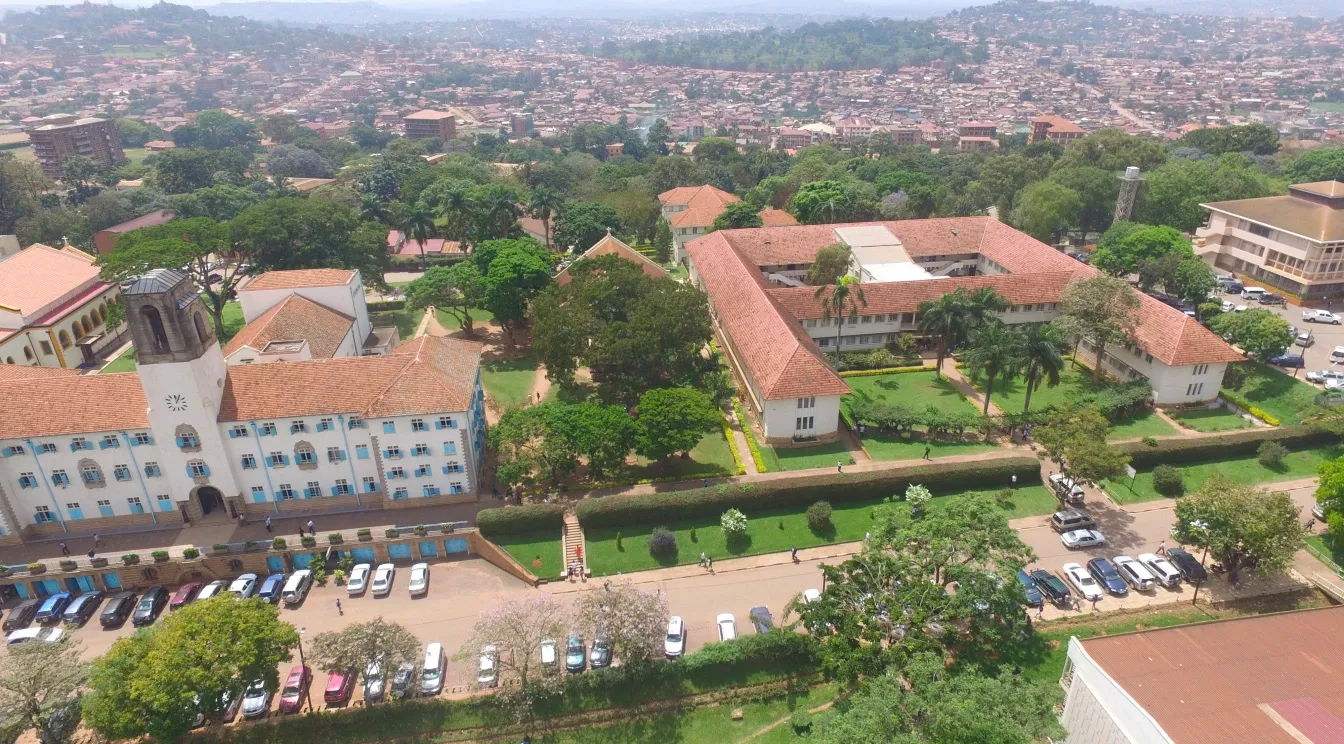Makerere University, Uganda’s premier academic institution with a storied history as a leading university in Africa, has found itself at the heart of a heated debate following reports of a significant drop in the 2025 Times Higher Education (THE) World University Rankings. These reports have sparked widespread controversy, concern among stakeholders, and prompted the university to issue a series of strong rebuttals clarifying its actual standing and highlighting what it describes as misinformation and misrepresentation in media coverage.
The Reports of a Decline
In early July 2025, media outlets reported that Makerere had tumbled sharply in the global and continental league tables. According to the reports, Makerere fell from a top 10 position in Africa to being tied at 41st, and from the 801–1000 band to the 1201–1500 band globally — a pattern framed as an “academic cliff” and attributed to long-standing challenges in management and infrastructure. Such coverage amplified concerns on social media and reignited debates about the institution’s governance, environment, and the efficacy of its leadership.

Makerere’s Response to the Rankings
Facing mounting criticism, Makerere University responded with a detailed public statement, highlighting what it described as fundamental errors in the media’s interpretation of the rankings. The university accused certain reports — in particular a headline story by the Daily Monitor—of conflating the Sub-Saharan African University Rankings with the World University Rankings, thus presenting an inaccurate and damaging picture of the university’s actual performance trajectory.

Key Points Raised by Makerere
- Error in Comparison: Makerere clarified that while it was ranked 8th in the 2024 Sub-Saharan Africa rankings, the 2025 regional edition had yet to be released as of the disputed articles’ publication date. Therefore, any narrative of a slide from regional 8th place to 41st was inaccurate, as 41st pertains not to Africa-only rankings but is a misreading of the world rankings, where positional banding is alphabetical rather than strictly by score.
- Impact Rankings Overlooked: The university condemned omissions regarding its achievements in the 2025 THE Impact Rankings, where Makerere significantly improved from the 601-800 band in 2024 to the 301-400 band in 2025. Most notably, Makerere was ranked 17th globally in the category of Decent Work and Economic Growth and within the 401-600 band for Quality Education, reflecting the university’s continued impact on critical Sustainable Development Goals (SDGs).
Balanced Perspective on Performance
Makerere acknowledged that there had been some decline in certain parameters of the World University Rankings. Vice Chancellor Prof. Barnabas Nawangwe and the Public Relations Office both emphasized that these areas—such as the ratio of international students and faculty, and certain research metrics—represent opportunities for ongoing improvement, rather than irreversible decline. Critically, the university’s leadership pointed to robust research output (ranking 4th in Africa by publication numbers), its pivotal role in health sciences, and a growing international collaboration network as evidence that the institution remains a powerhouse in several core areas.
External Clarifications
Publishers of the World University Rankings, including THE itself, weighed in to clarify the nature of their reporting. They emphasized that:
The 41st position cited in some media was not an official ranking, but merely a result of an alphabetical listing within a performance band.
Institutional performance in THE is assessed across 18 metrics, and while Makerere performed strongly in research, industry engagement, and societal impact, it lagged behind in internationalization and funding stability, which hurt its overall rank.
Criticisms and Calls for Constructive Engagement
While some analysts blamed the university’s decline on structural and leadership challenges — citing decaying infrastructure and staffing deficits — Makerere challenged these conclusions as incomplete. The university called for a nuanced, responsible approach to both reporting and rankings analysis, warning stakeholders not to let alarmist or sensationalist coverage tarnish its reputation or distract from genuine achievements and areas needing improvement.
Conclusion
Makerere University’s public dispute with recent poor ranking reports is rooted in a call for accuracy, balanced reporting, and stakeholder engagement rooted in verifiable evidence. While acknowledging shortcomings in some ranking dimensions and pledging focused improvement, the university continues to reaffirm its status as Uganda’s undisputed academic leader and a significant contributor to research, innovation, and development across Africa. Through clarifications, Makerere seeks not only to correct the record but also to inspire confidence in its ongoing quest for academic excellence.

